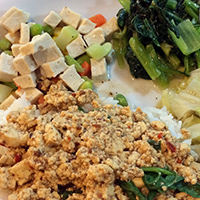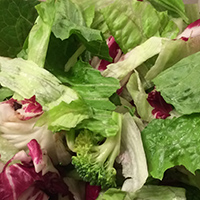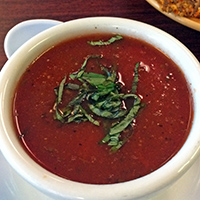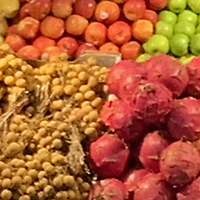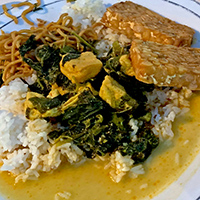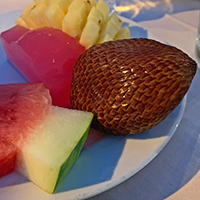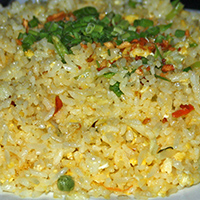OBJECTIVES By the end of this session you will be able to:
|
Tasks for this session
Before you come to class for our tenth class meeting:
Read
Read pages 302-345 in Building Powerful Organizations by Michael Jacoby Brown
Watch and Listen
There is nothing assigned for you to watch or listen to. But, I do hope if you have time (like if you are driving somewhere or trying to fall asleep and you want to listen to something interesting) you will get to know Alicia Garza, an interesting activist from the San Francisco Bay area who helped to start Black Lives Matter. You could:
1) listen to this interview with Alicia Garza from KPFA (Pacifica Radio) [.m4a file, AAC]. A lot of this at the start is about Kamala Harris, but it gets more directly about organizing later in the interview.
2) read this interview of Alicia Garza with Ajamu Amiri Dillhunt from Black Perspectives
3) Learn about the Black Futures Lab
4) listen to or watch her interview with The Washington Post (2020, on Youtube)
5) listen to or watch her interview with Vanity Fair (2020, on Youtube)
Also, while I'm not insisting you listen to it, I think you might want to listen also to this interview with a UIS student (R’Lee Jones) about her internship with the Faith Coalition for the Common Good here in Springfield (9 minutes).
Tasks
Activity One
In the ninth week of class in Spring, we have class on Zoom and/or classroom. Students will present what they learned from the sets of documentaries they watched in session eight.
Activity Two
By now, you should be able to hold that informal get-together with some people as part of your first experiential learning assignment. In my plan for time use this semester where you put in about 11-12 hours each week for this class, I am allocating four hours for you to hold your social get-together this week. If you are doing this some other week, reallocate those hours of your time to other experiential learning tasks.
Activity Three
Hopefully you are still active in some group, and you are doing some sort of work and attending some sort of meetings, and seeing what is going on. I assume you are spending about 1 hour or 2 hours on this during this week.
Activity Four
You should probably devote at least an hour to working on your grand challenge paper this week.
Activity Five
For your fourth experiential learning assignment (plan how you would collaborate or work with someone who is your opposite or adversary), you should have finished doing research on your opposition by now, and this week you ought to write your proposal for how you would work with the person on something.
Activity Six
Maybe look for some journal articles you could use in your journal, and read those?
TASK TO COMPLETE
We are starting the second half of the semester now, so you will ideally have turned in your first draft of your learning journal in the 8th session, but if you turn it in during this 9th session, that is fine. Your instructor will have feedback for you by the tenth or eleventh session.
During our class meeting for session 9, this is what we will do:
1. Check in.
2. Discuss any macro practice that has been in the news.
3. Each person will present the documentaries they watched, and what they learned from those documentaries, and give their recommendations about those documentaries. It is important that you ask each other questions about the documentaries they watched. This will take up most of the class.
4. We will share reports from the field, where you tell us about your experiences in the experiential learning assignments.
5. We will share your thinking on the Grand Challenges you are studying. What tasks are you considering, and what tactics and strategies are you imagining would be helpful? It is important to take time to disucss this now, in the middle of the semester, so that as you work on your paper in the coming weeks you will have some feedback on how you will approach the assignment and your writing.
Session Time Budget
3h 30m |
Canvas Discussion Boards and our class meeting at the start of the eighth session |
3h |
Hold that social get-together for the first experiential learning assignment (this is a proposed week for you to do this; there is no rule that you must do this event this week, and ideally, you have already held your meeting before this session) |
2h |
Read pages 302-345 in Building Powerful Community Organizations and do the exercise on “Information as a Source of Power on pages 314-315. |
1h |
Continue your participation in a group or organization so that you can use this participation to inform your thinking with practical applications of what we are learning in this class. |
1h |
Work on your Grand Challenges Paper, doing research and background work. |
30m |
Work on your fourth experiential learning assignment. Write up a firstr draft of your plan or letter or proposal to work in collaboration with someone you normally would oppose. My assumption is that you will complete this experiential learning assignment in the next session. |
Discussion Board Questions (Activity One)
Go into Canvas, log in, and respond to the discussion questions for this session.
These are:
DQ 9-1: Check In
Check in for the ninth week of the semester. Tell us what is going on. Share something you have done in the recent days or weeks that you feel good about.
DQ 9-2: Continue the Discussion of the Documentaries
In Session 8 you described the documentaries you watched and critiqued them on the usefulness and realism with which they treated the issues around the actual activities of running social movements or engaging in policy practice. In this session, I want you to say more about the documentaries you watched in terms of how they might influence audiences. How were images used? How did the filmmaker use the words of the main subject or persons involved in the main cause? (Remember, there was probably careful editing to just include a few phrases or words that the filmmaker thought were most useful for carrying along a narrative or story). I’d like you to consider how the story or stories in the documentary carries forth a “moral narrative” or a story about values and moral purposes (consult the idea of George Lakoff to get an idea of what I mean by this). If you like, you can consider music, editing, or any other aspect of the films you want to discuss.
DQ 9-3: Reports from the field
Share some of your experiences as you work on your experiential learning assignments. As you write things up for your learning journal, you could submit your write-ups here in the discussion board and get feedback on them.
DQ 9-4: Actions
The readings this week discuss actions. There are four points about actions that a community organizer must remember: actions cause tension, and tension leads to change; actions require face-to-face confrontation; actions make obvious the contradictions between how people ought to be treated and how they are actually treated; and people learn through actions.
Imagine and describe an “action” that a group might take, and for that hypothetical or imagined action, explain how the action could illustrate the four points.
DQ 9-5: Types of actions
Brown describes four types of actions, but says these are just common actions, and not an exhaustive list. He describes: forums or panels; public hearings; research actions; and accountability sessions. If you have ever been to any action such as these four, please tell us about the experience, and what you saw at that action If you have never been to any sort of action such as these four described, imagine one action, and describe what you think might happen if you were involved in planning and carrying out that action.
DQ 9-6: Get people moving and keep them moving
Brown gives an example about a community leader from a public housing group on Franklin Street going downtown to get a voter registration petition. She heard a clerk at city hall speak in prejudiced ways about the people of her community, and this shook her up, but it made her angry and helped give her energy to get people registered to vote (see pages 308-310). Brown says that if people are passive, they will tend to remain passive, but once they become active, they will tend to remain active. Think about that claim he is making, and consider your own life or the lives of persons you personally know well. In your experience, is this true? Have you (or someone you know) ever gotten motivated and busy on some task or project or did you ever get active with some group, and then after you (or the person you know) started being involved in what you (or they) were doing, it became more like a routine or regular habit? Give an example that supports Brown’s point about keeping people busy and how getting people to experience something outside their normal routine helps them grow so they can do new things. Or, if you prefer, argue that Brown is wrong.
DQ 9-7: Talk about what you have done and learn from it
One of the rules of organizing is that there must be learning from every action. In many cases, this is done through having some time set aside when people who participated in some action talk about what they did and how it worked. What did they learn? What did they do, and what reactions did they get? What worked? What didn’t work? What would they do differently next time? Think about the group you are participating in for the third experiential learning assignment in this course, or think about any other active group that you know that is doing things, and tell us if the group is intentionally setting aside time to talk about what they are doing and what they are learning from what they are doing. Tell us how you could possibly start incorporating this insights about the importance of talking about actions into your own life and activities? What could you do to join with others and talk about your experiences and actions in a way that would help you all think about, analyze, and learn from your experiences?
DQ 9-8: Mountain Home Mobile Park
Study the case-study Brown presents in pages 327-334. It is long and detailed, and illustrates many of processes and insights shared in the book up to this point. After reading that case study carefully, share a point (or two) illustrating something in the case study that was done correctly, but you suspect is often not done. That is, was there anything in that case study that might be overlooked or neglected by someone who is untrained or unskilled in macro practice? Have you witnessed any sort of situation where people were trying to make change, and they put some efforts into causing the change they wanted, but they did not do something that Brown says is important and that he has illustrated in the case study of Mountain Home Mobile Home Park?
DQ 9-9: Information is a Source of Power
Do the exercise on pages 314-15 in Building Powerful Organizations and share your results with the class. Discuss the results. This is the exercise on Information as a Source of Power. You might do this for some issue related to your Grand Challenges paper. You might do it for an issue the group you are involved with in your third experiential learning assignment is trying to address.
Interesting Stuff To Explore (optional stuff)
Web pages and papers that discuss the abolition movement and the organization of the abolitionists. There are also some various other articles that may relate to macro practice, and could be of some interest to you.
Abolition, Anti-Slavery Movments, and the Rise of the Sectional Controversy.
Hechter, M., Matesan, I. E., & Hale, C. (2009). Resistance to alien rule in Taiwan and Korea. Nations and Nationalism, 15(1), 36–59. https://doi.org/10.1111/j.1469-8129.2009.00378.x
Hughey, M. W. (2009). Black Aesthetics and Panther Rhetoric: A Critical Decoding of Black Masculinity in The Black Panther, 1967--80. Critical Sociology, 35(1), 29–56. https://doi.org/10.1177/0896920508098656
Huzzey, R. (2012). Minding Civilisation and Humanity in 1867: A Case Study in British Imperial Culture and Victorian Anti-Slavery. The Journal of Imperial and Commonwealth History, 40(5), 807–825. https://doi.org/10.1080/03086534.2012.730835
Milkis, S., & Tichenor, D. (2011). Reform’s Mating Dance: Presidents, Social Movements, and Racial Realignments. The Journal of Policy History, 23(4), 451–490. https://doi.org/10.1017/S0898030611000261
Jubas, K. (2008). Adding Human Rights to the Shopping List: British women’s abolitionist boycotts as radical learning and practice. Convergence, 41(1), 77–94.
Kilbride, D. (2015). What did Africa Mean to Frederick Douglass? Slavery and Abolition, 36(1), 40–62. https://doi.org/10.1080/0144039X.2014.916516
Mcclendon, A. D. (2014). Sounds of Sympathy: William Wells Brown’s Anti-Slavery Harp, Abolition, and the Culture of Early and Antebellum American Song. African American Review, 47(1), 83–100.
McDaniel, W. C. (2013). The Case of John L . Brown: Sex, Slavery, and the Trials of a Transatlantic Abolitionist Campaign. American Nineteenth Century History, 14(2), 141–159. https://doi.org/10.1080/14664658.2013.805551
Phinney, R. (2016). Advocacy for the Poor. American Politics Research, 44(5), 903–938. https://doi.org/10.1177/1532673X16640748
Pulido, L. (2002). Race, Class, and Political Activism: Black, Chicana/o, and Japanese-American Leftists in Southern California, 1968–1978. Antipode, 34(4), 762–788. https://doi.org/10.1111/1467-8330.00268
Smith, R. (2012). Learning from the abolitionists, the first social movement. BMJ: British Medical Journal, 345(7888), 56–58. https://doi.org/10.1136/bmj.e8301
Tyner, J. A. (2006). “Defend the Ghetto”: Space and the urban politics of the Black Panther Party. Annals of the Association of American Geographers, 96(1), 105–118. https://doi.org/10.1111/j.1467-8306.2006.00501.x
Here are some films about abolitionists or the abolitionist movement, or films about slavery (only those with a rating of 7.0 or higher). Considering its significance in American history and culture, we suffer from a terrible deficit of films about these topics. The first film about Harriet Tubman didn’t come out until 2019 (and only has a 6.5 rating on IMDb, which is why it doesn’t appear below) and we still haven’t seen a film with Sojourner Truth, Robert Smalls, or Frederick Douglass as main characters, which is shocking. In addition to the film “Amazing Grace” (a feature film option in the 5th session of this course) these are the only eight major feature films I know of that have something to do with slavery as a main them and are rated highly.
- The 1927 silent film era Uncle Tom’s Cabin (available on YouTube). Score of 7.1
- The 1971 film, Skin Game. Score of 7.0
- The 1989 film, Glory. Score of 7.9
- The 1997 film, Amistad. Score of 7.2
- The 2012 film, Lincoln. Score of 7.4
- The 2012 film, Django Unchained. Score of 8.4
- The 2013 film, 12 Years a Slave. Score of 8.1
- The 2013 film, Belle. Score of 7.4
And one more thing; let’s review the rules for protests:
- Instead of responding negatively and trying to obstruct everything, offer alternatives that are better.
- Do not say or do things that will look reprehensible to moderates and undecided persons.
- Make the message as salient as possible.
- Be unignorable.
- Keep up the protest for more than a day.
- Have more than 100 persons present.
- Have political organizations attached to protests.
- Unite overlapping protest concerns under one banner.
- Pivot from talk to action.
- Protests can't just be reactive; they need to be proactive.
- The more conservative the protests are, the more radical they are.
- Protests should be fun.
Come to the next class ready.
During our tenth class we will just have discussion board discussion. Our next Zoom class will be for our 11th class meeting. Between now and then you just need to finish reading Michael Jacoby Brown’s book and work on your experiential learning assignments and your grand challenges paper.


















